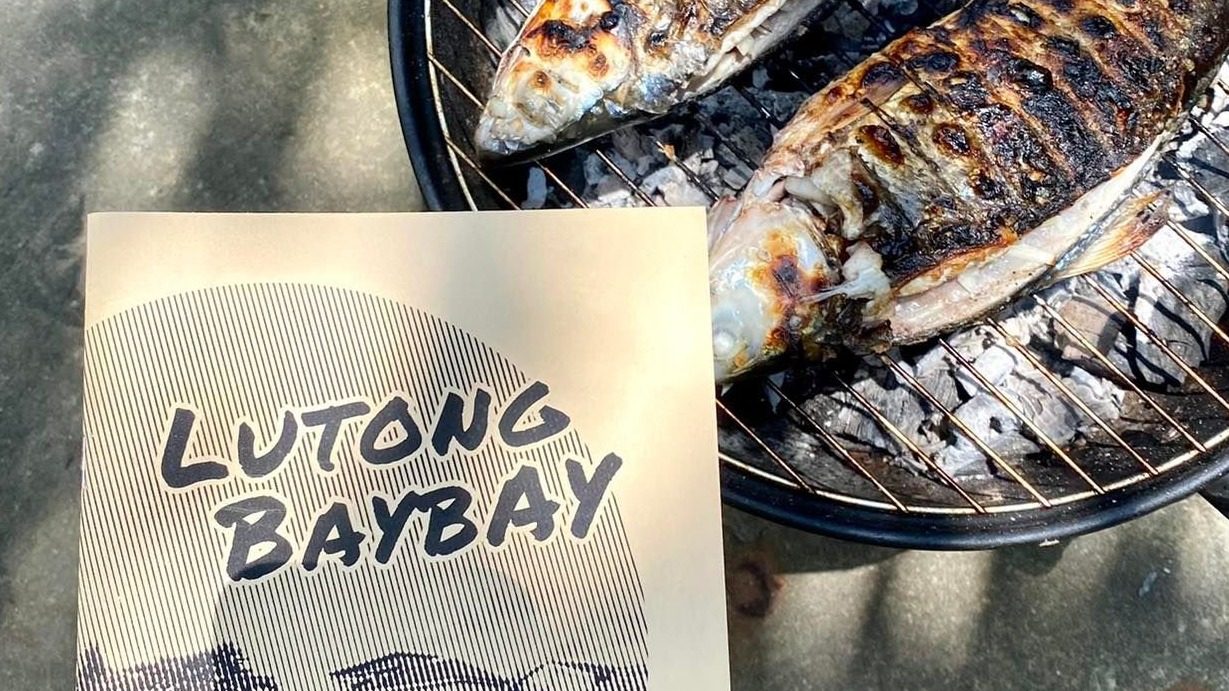SUMMARY
This is AI generated summarization, which may have errors. For context, always refer to the full article.

CEBU, Philippines – Food has always woven together Filipino society. But for the women of Dumaguete, it is not only an expression of love, but also an encapsulation of their way of life.
Lutong Baybay, an independently published local zine, features well-loved seafood recipes in the City of Dumaguete in Negros Oriental. The recipes come from women in the city’s six fishing communities: Barangay Tinago, Barangay Looc, Barangay Bantayan, Barangay Piapi, Barangay Calindagan, and Barangay Banilad. It tells the story of a people bound together by the sea, facing a common threat in the name of development.
In particular, the zine arose as a response to proposed 174-hectare Smart City reclamation project in Dumaguete. Residents in both the fishing and urban areas decry the project for the lack of inclusivity in its implementation, and the wide-reaching effects it will have on the marine environment as well as the livelihood of the people in coastal barangays.
“Hindi man tayo nanggagaling sa parehas na uri, pero lahat tayo naiintindihan and importansya ng pagkain. Nawa’y maging tulay ito para sa pagkakaintindihan natin sa isa’t isa, at pagtindig natin para sa ating mga karapatan,” wrote youth leader Alisandra Abadia wrote in the zine’s introductory pages.
Lutong Baybay is adorned with illustrations from local artists Gab Ferrer and Alex Villarino. Produced by visual artists, student activists and community organizers, writers, and the women of these communities, the zine is a testament of Abadia’s words: food as a necessity transcends classes.
Cutting across sectors
Award-winning writer Sigrid Gayangos, the main writer behind Lutong Baybay, recalls that the people behind zine have come to know each other during the routine Friday protests against the 174 Dumaguete reclamation project.

Sigrid said that it was in these protests, attended by students, activists, and environmental advocates, that they noticed a lack of attendance from the very people of the affected seaside communities. They have later come to understand that it was because for members of Dumaguete’s fishing communities, who labor day to day to get by, time spent in these demonstrations translated to loss of income.
“And it’s understandable because for you to be physically present in protests, you need to set aside a day’s work. And honestly not everyone has the luxury and privilege to do that. We wanted to come up with something that would give members of vulnerable communities a platform to tell their stories,” she said.
Because the ability to air out concerns is a privilege inaccessible to some, the team behind Lutong Baybay decided to bridge the gap – visiting the communities, taking their time to understand the realities on the ground, and then presenting it to people who they cannot normally reach.
Stories through food
For the team behind Lutong Baybay, food is a topic that not only involves cultural experiences but also social and economic truths.
“We realized ano ba ang most important thing that connects them to the sea aside from that’s where they live. The very basic thing is what feeds them, what gives them sustenance,” she added.

A plate not only carries with it expressions of taste and history, but also encompassing realities such as prices of commodities, the availability of resources, and the subsequent decision-making upon being confronted by these variables.
“We read statistics na parang we know how catastrophic it is. What percent of the ocean will be directly affected, etcetera pero it’s really different to get the human stories. To realize that these people, they are not just statistics. These are actual members of communities. These are mothers, these are sisters, these are sons, and fathers who will directly be affected and their way of life affected,” Gayangos said.
To express this, the zine features not only the portions of the ingredients needed per recipe, but also their corresponding prices. This is in the hope that people understand what it is like to “stretch the daily budget on food at the time of extreme socio economic crisis that we experienced under the pandemic.”
A face to the statistic
Human rights advocate Coriander Gunn, one of the researchers behind the zine said that Lutong Baybay put a face to the numbers and concepts they have been fighting for in the Friday protests.
“All of us, we have this scientific, academic, approach… but in going and talking with them, we saw the already [present] effects that it’s had. Not just the reclamation but all the various development projects in Dumaguete, and the real life impacts on these people. Whether it be flooding in Tinago or not being able to provide for your families in multiple barangays,” he said.

The zine introduces each recipe with a description of the topography and the way of living in each barangay. For barangay Tinago in particular, the respondents talk of massive flooding that came after the first reclamation project in their community, the worst incident was in 2020, after Typhoon Vicky.
The respondent in Barangay Looc who comes from a long line of fishermen, hopes that her children would still be able to benefit from the sea they have survived on for multiple generations. Her hopes persist despite the declining number of fishes they catch over the years.
“It was able to put some real-life consequences to this and how it’s impacting people today and not this mythical thing that will happen in five to ten years,” Gunn said.
This experience is what the creators wish to carry forward to their readers. For Photos of Siliman Beach in Bantayan from Lutong Baybay staff, the conversation does not stop with the Dumaguete reclamation project alone, but of the general concept of development, and the inclusion of more sectors in the process.
“Several reclamation projects have been approved in this administration. Sure, the stories are very Dumaguete-centric but this is to stand in solidarity with all those communities that are facing the threats of reclamation,” Gayangos told Rappler.
“Hopefully, if this gets traction outside of Dumaguete, it will be to create ripples to continue this discussion na parang when we talk about development, what do we mean really? Development is not just building infrastructures and drowning us all in concrete. Development should be number one, sustainable and number two, inclusive. It should not sideline any sector.” she added.
Physical as well as digital copies of the zine can be ordered through the Bantayan Community Pantry- Dumaguete Facebook page. Part of the proceeds will go directly to the barangays featured in Lutong Baybay. – Rappler.com
Add a comment
How does this make you feel?










There are no comments yet. Add your comment to start the conversation.